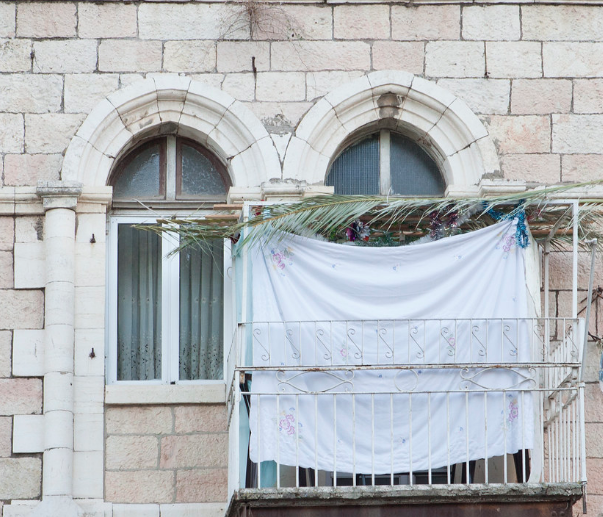
Turning Sukkot Inside Out
by Shoshana Lovett-Graff
When I first moved into my third-floor apartment, I lamented my lack of a backyard. The concept that I would not have access to the earth, even the crumbling, gravel-ridden soil of West Philly, seemed foreign to me, especially coming from Florida, where my former one-story home stubbornly squatted in the swampland surrounding it, dirt creeping up its walls and onto the window screens. I liked the idea of having a spot of land I could place a lawn chair on, where I could nestle beneath an elm tree and marvel at the shadows of buildings above me. The balcony sufficed, though the material beneath my feet was slightly corroded and paint chips occasionally floated down from the roof.
I sat on my balcony often, reading, eating, or talking with friends. The open sides kept me cool on warm nights and the roof, with a garland of lights wrapped around its interior frame, kept the rain and sun at bay. Though the balcony was connected to my apartment, it made me feel differentiated somehow. I felt more at ease, more pensive, when I sat on my folding chair and looked out on the street below.



